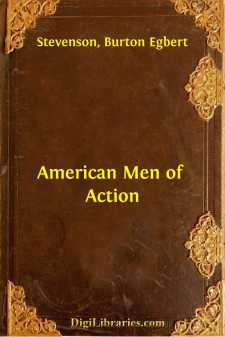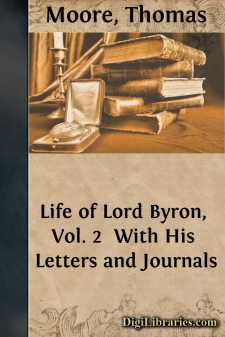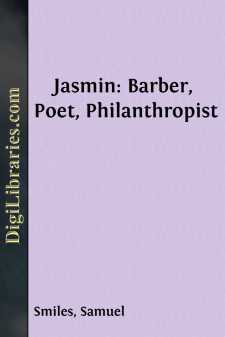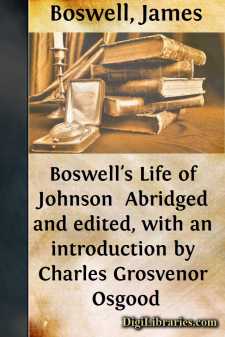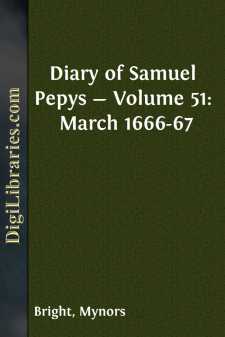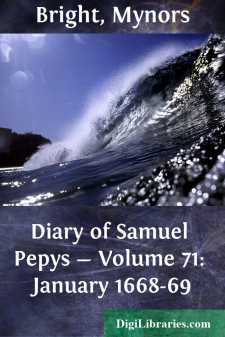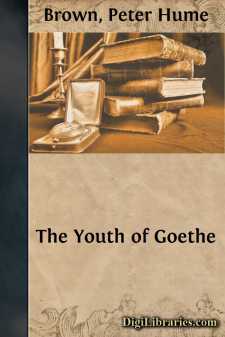Biography & Autobiography
- Adventurers & Explorers 15
- Artists, Architects, Photographers 16
- Business 2
- Composers & Musicians 14
- Criminals & Outlaws 5
- Editors, Journalists, Publishers 6
- Educators 1
- Entertainment & Performing Arts 3
- General 73
- Health, Exercise & Fitness 1
- Historians 3
- Historical 83
- Law Enforcement 1
- Lawyers & Judges 3
- Literary 147
- Medical 7
- Military 48
- Naturalists, Gardeners, Environmentalists 8
- Personal Memoirs & Diaries 226
- Philosophers 3
- Political 9
- Presidents & Heads of State 38
- Religious 38
- Rich & Famous 27
- Scientists 13
- Women 31
Biography & Autobiography Books
Sort by:
I. USES OF GREAT MEN. It is natural to believe in great men. If the companions of our childhood should turn out to be heroes, and their condition regal, it would not surprise us. All mythology opens with demigods, and the circumstance is high and poetic; that is, their genius is paramount. In the legends of the Gautama, the first men ate the earth, and found it deliciously sweet. Nature seems to exist...
more...
CHAPTER I A TALK ABOUT BIOGRAPHY No doubt most of you think biography dull reading. You would much rather sit down with a good story. But have you ever thought what a story is? It is nothing but a bit of make-believe biography. Let us see, in the first place, just what biography means. It is formed from two Greek words, "bios," meaning life, and "graphein," meaning to write:...
more...
by:
Thomas Moore
NOTICES LIFE OF LORD BYRON. Having landed the young pilgrim once more in England, it may be worth while, before we accompany him into the scenes that awaited him at home, to consider how far the general character of his mind and disposition may have been affected by the course of travel and adventure, in which he had been, for the last two years, engaged. A life less savouring of poetry and romance...
more...
by:
Samuel Smiles
My attention was first called to the works of the poet Jasmin by the eulogistic articles which appeared in the Revue des Deux Mondes, by De Mazade, Nodier, Villemain, and other well-known reviewers. I afterwards read the articles by Sainte-Beuve, perhaps the finest critic of French literature, on the life and history of Jasmin, in his 'Portraits Contemporains' as well as his admirable article...
more...
by:
Lyndon Orr
THE WIVES OF GENERAL HOUSTON Sixty or seventy years ago it was considered a great joke to chalk up on any man's house-door, or on his trunk at a coaching-station, the conspicuous letters "G. T. T." The laugh went round, and every one who saw the inscription chuckled and said: "They've got it on you, old hoss!" The three letters meant "gone to Texas"; and for any man to...
more...
by:
James Boswell
INTRODUCTION Phillips Brooks once told the boys at Exeter that in reading biography three men meet one another in close intimacy—the subject of the biography, the author, and the reader. Of the three the most interesting is, of course, the man about whom the book is written. The most privileged is the reader, who is thus allowed to live familiarly with an eminent man. Least regarded of the three is...
more...
by:
Mynors Bright
DIARY OF SAMUEL PEPYS. MARCH 1666-1667 March 1st. Up, it being very cold weather again after a good deal of warm summer weather, and to the office, where I settled to do much business to-day. By and by sent for to Sir G....
more...
I War, war, war. For me the beginning of the war was a torchlight tattoo on Salisbury Plain. It was held on one of those breathless evenings in July when the peace of Europe was trembling in the balance, and when most of us had a heartache in case—in case England, at this time of internal crisis, did not rise to the supreme sacrifice. It was just the night for a tattoo—dark and warm and still. Away...
more...
by:
Mynors Bright
JANUARY 1668-1669 January 1st. Up, and presented from Captain Beckford with a noble silver warming-pan, which I am doubtful whether to take or no. Up, and with W. Hewer to the New Exchange, and then he and I to the cabinet-shops, to look out, and did agree, for a cabinet to give my wife for a New-year's gift; and I did buy one cost me L11, which is very pretty, of walnutt-tree, and will come home...
more...
by:
Peter Hume Brown
PREFACE "Generally speaking," Goethe has himself said, "the most important period in the life of an individual is that of his development—the period which, in my case, breaks off with the detailed narrative of Dichtung und Wahrheit." In reality, as we know, there is no complete breach at any point in the lives of either nations or individuals. But if in the life of Goethe we are to...
more...



